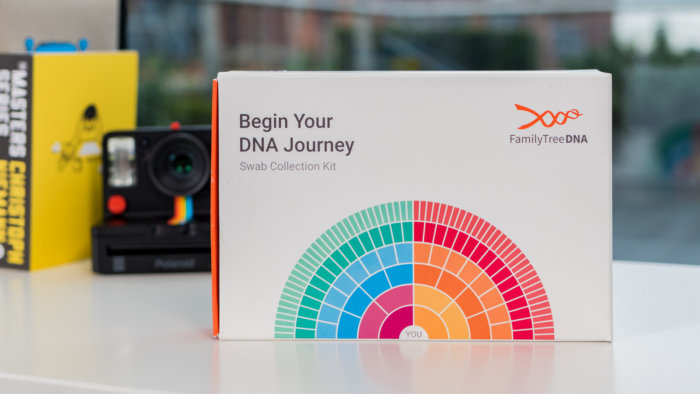(Note from Erin: Guess whose DNA they have? Mine. Not very happy about that.)
Now that home DNA testing kits are so affordable more and more people are excitedly buying them, hoping to find out who they are. And some can even go a step further and make you aware of health problems you might be more susceptible to. So, a win-win. Right? Well, that depends on who you want having access to that detailed and personal information.
Up until recently, it was just a handful of private companies who had large databases of genetic data. However, you can now count the FBI on that list:
“As BuzzFeed reports, this week FamilyTreeDNA confirmed that it is working with the FBI and allowing local law enforcement access to its genealogy database. The number of DNA profiles stored in that database is thought to total over a million.”1
Because there are a number of active cases that haven’t been solved (because they have DNA but no one to match it to) the FBI believes that opening up genealogy databases could help to solve those crimes. And sure, that makes perfect sense. But it’s also a huge invasion of privacy.
“The FBI is already using publicly available DNA databases, but this is the first time it has gained access to a private database. It does, of course, raise some privacy concerns and a few FamilyTreeDNA customers may be contacting the company to ask what’s going on, and possibly how to go about removing their data from the database.
The agreement between the FBI and FamilyTreeDNA sees the company work on a case-by-case basis. So far, ‘fewer than 10 cases’ have required access to the database.
In its privacy statement, FamilyTreeDNA makes it clear that your personal information is never shared with third parties without additional consent. Your genetic information will never be shared with ‘pharmaceutical or insurance companies, employers, or third-party marketers without your express consent.’ The terms of service got updated in December to state (in Section 6.B.xii) that law enforcement can make use of the database to ‘identify the perpetrator of a violent crime.’ Sexual assault, rape, homicide, and the remains of a deceased all fall under that category.”1
But if you have given your DNA to FamilyTree don’t worry, Bennett Greenspan, president and founder of FamilyTreeDNA’s parent company Gene by Gene, explained, “We came to the conclusion that if law enforcement created accounts, with the same level of access to the database as the standard FamilyTreeDNA user, they would not be violating user privacy and confidentiality.”1
The company also went on to explain that in order for the FBI to obtain additional info they have to first have a valid court order.
What do you think? Do you want the FBI having access to your DNA?
SOURCE:












